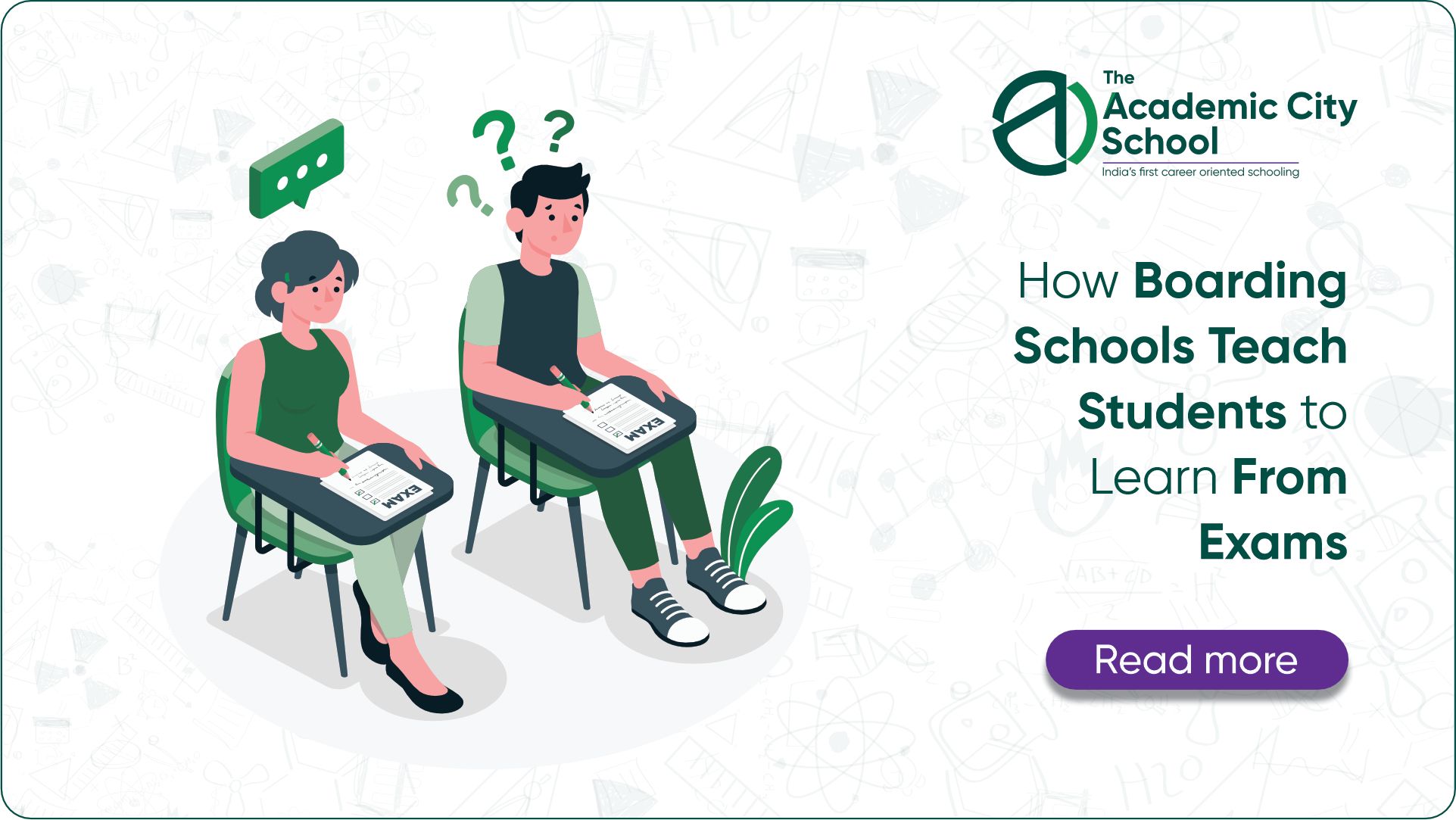How Boarding Schools Teach Students to Learn From Exams

Introduction: Rethinking Exams
How many of us remember exams as moments of fear rather than growth? For decades, assessments have been viewed as finish lines — pass or fail, good or bad. But forward-looking educators are reframing the conversation: exams are checkpoints, not endpoints. They show students where they stand, what they’ve mastered and where they can grow next.
The real challenge? Helping children see exams this way. And this is where boarding schools in Karnataka and across India play a game-changing role, because of their structure in general.
Why Exams Are Misunderstood
- Pressure from grades: Marks often overshadow the learning journey.
- Rote vs. real understanding: Traditional exam prep rewards memorisation more than comprehension.
- Stress culture: Exams are often linked with anxiety, not reflection.
As educationist Carol Dweck, author of Mindset, explains:
“Tests should be seen as opportunities to measure growth, not as permanent judgments.”
Boarding Schools: Turning Exams Into Growth Tools
1. Continuous Feedback Over One-Off Judgments
In CBSE residential schools in Bangalore, students experience:
- Weekly reviews to track progress.
- Mock tests that help normalise the exam atmosphere.
- Feedback sessions where teachers highlight strengths and gaps.
2. Structured Preparation Reduces Fear
Boarding schools build routines around study and rest. With scheduled time for learning, exams become predictable. Students learn that consistent habits outweigh last-minute cramming.
Harvard research on adolescent learning shows structured study environments reduce stress and boost retention.
3. Teaching Reflection, Not Just Results
After exams, boarding schools encourage:
- Self-review: Students analyse mistakes and redo tricky problems.
- Teacher conferences: Guided discussions help them understand why they went wrong.
- Peer discussions: Group sharing normalises mistakes and highlights learning strategies.
The Growth Skills Exams Can Teach
Handled well, exams become tools for life:
- Resilience: Bouncing back after a tough paper.
- Adaptability: Learning new strategies for different types of questions.
- Time Management: Pacing answers within deadlines.
- Critical Thinking: Applying concepts instead of memorising them.
As the OECD’s Future of Education and Skills 2030 report notes:
“Assessment should build skills for lifelong learning, resilience, adaptability and curiosity.”
Beyond Marks: Connecting Exams to Higher Education
For parents, one big question is: How do exams prepare my child for college?
In boarding schools for higher education planning:
- Exams simulate real-world challenges like deadlines.
- Continuous assessments build confidence for competitive exams like JEE, NEET, SAT.
- Teachers mentor students on linking exam performance to career pathways.
Why Karnataka Leads in Exam Readiness
Boarding schools in Karnataka balance academics with wellbeing. Students benefit from:
- Green, calming campuses that reduce stress.
- Access to technology-enabled prep tools.
- Exposure to co-curriculars that keep mental health strong during exam seasons.
The Academic City School: Where Exams Become Stepping Stones
At The Academic City School (TAC), assessments are woven into learning. TAC focuses on:
- Personal Progression Plans: Tailored strategies for every child.
- Guided Exam Prep: Mock tests and reflective feedback.
- Balance of Pressure and Support: Stress management workshops and structured study routines.
- Higher Education Planning: Linking CBSE success to global opportunities.
Conclusion: Exams as Growth, Not Gloom
Exams don’t have to be dreaded. In the right environment, they’re mirrors that reflect strengths and weaknesses.
For parents considering boarding schools in India, especially CBSE residential schools in Bangalore and Karnataka, the question should be whether schools teach children to face exams with courage and clarity.





